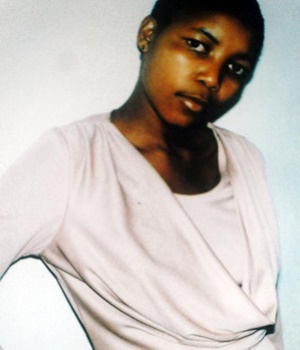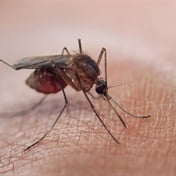
Has South Africa’s democratic government contrived to protect apartheid security forces killers from prosecution?
This is the question that arises from affidavits and documents that were filed before the North Gauteng High Court this week in a case aimed at forcing a proper investigation and prosecution of police officers who were involved in the abduction and disappearance of Umkhonto weSizwe operative Nokuthula Simelane in 1983.
The case is being brought by Nokuthula’s sister, Thembisile Nkadimeng, who is the mayor of Polokwane and is backed by the Legal Resources Centre. She is asking the court to order an inquest into the case, citing lack of interest on the part of the authorities in pursuing the matter.
Nkadimeng argues that the state appears to “have put in place measures to manipulate, control or obstruct prosecutorial decisions dealing with political cases of the past”.
The affidavits – signed by, among others, former National Prosecuting Authority (NPA) head Vusi Pikoli, former head of apartheid prosecutions Anton Ackermann, former commissioner for the Truth and Reconciliation Commission (TRC) Dumisa Ntsebeza and internationally renowned policeman Frank Dutton – allege high-level interference by ministers and senior officials to thwart prosecutions.
All have first-hand experience of this case and others like it. This interference, it appears from the documents, emanated from a fear that the prosecution of apartheid perpetrators would open the door to ANC leaders and members also being charged.
Those who allegedly received such protection are figures who were either refused amnesty by the TRC or failed to appear before it despite being implicated in serious crimes.
In the affidavits, it is stated that:
. The government of then president Thabo Mbeki drew up a policy that would have, in effect, overridden the TRC process.
. Pikoli was summoned to meetings with groups of ministers – once at a senior minister’s private residence – where the NPA’s determination to proceed with the apartheid cases was discussed.
. Ministers raised concerns that the prosecutions might lead to calls for similar actions against ANC members.
. Ministers actively tried to block the prosecutions of former law and order minister Adriaan Vlok and top police officers.
. Late former police commissioner Jackie Selebi tried to interfere in the NPA’s prosecutorial decisions.
. All apartheid prosecutions stopped immediately after Pikoli was removed and replaced by Mokotedi Mpshe.
. Anton Ackermann, who was in charge of prosecuting apartheid-era crimes, was shifted aside shortly after Pikoli’s suspension.
. TRC cases did not resume under subsequent NPA heads.
. The Simelane case had been deliberately frustrated by the police and the NPA despite there being direct evidence of abduction and vicious torture, and evidence pointing to a possible murder.
Organisations and activists who want apartheid crimes prosecuted now want to use the Simelane case to compel the NPA to follow the law and prosecute rather than bow to what they see as political interference.
In his affidavit, Pikoli details how he was subjected to pressure from various ministers – mainly then justice minister Brigitte Mabandla – to drop the apartheid-era prosecutions. He attaches correspondence between himself and Mabandla and also relates his clashes with Selebi about the matter.
“I have little doubt that my approach to the TRC cases contributed significantly to the decision to suspend me. It is no coincidence that there has not been a single prosecution of a TRC case since my suspension and the removal of TRC cases from Advocate Ackermann,” he writes.
Pikoli is scathing about the “political interference and meddling” he says he was subjected to, and which he describes as “deeply offensive to the rule of law and any notion of independent prosecutions under the Constitution”.
He states the interference from his superiors was in violation of the NPA Act, which “criminalises the obstruction of the work of the prosecuting authority”.
Ackermann, who eventually left the NPA in 2013, claims in his affidavit that he experienced interference with his attempt to nail the police officers who had tried to kill Frank Chikane – and that his team’s bid to get to the bottom of the Simelane matter was obstructed.
He says he believes investigations of TRC cases “have been effectively stopped by machinations that took place above the level of the NPA”.
These machinations, he states, undermined the rule of law and constituted a “deep injustice against the family of the late Simelane as well as the families of other victims of apartheid-era crimes”.
Dutton outlines how, after analysing the steps taken by the authorities to get to the bottom of the Simelane matter, he found that “some of the most basic aspects” of the investigation had not been completed by last year, with “no acceptable explanation” being provided by those involved as to the reasons.
“I believe that the delay can only have been the result of a wilful decision not to see justice done in this matter,” says the founding head of the Scorpions, who has headed up investigations into war crimes and human rights violations in countries including Bosnia and East Timor.
Ntsebeza, who headed the TRC’s investigation unit, has bemoaned the “shameful lack of political will to deal with issues of reparations and accountability for the apartheid-era victims of gross human rights violations”




 Publications
Publications
 Partners
Partners








